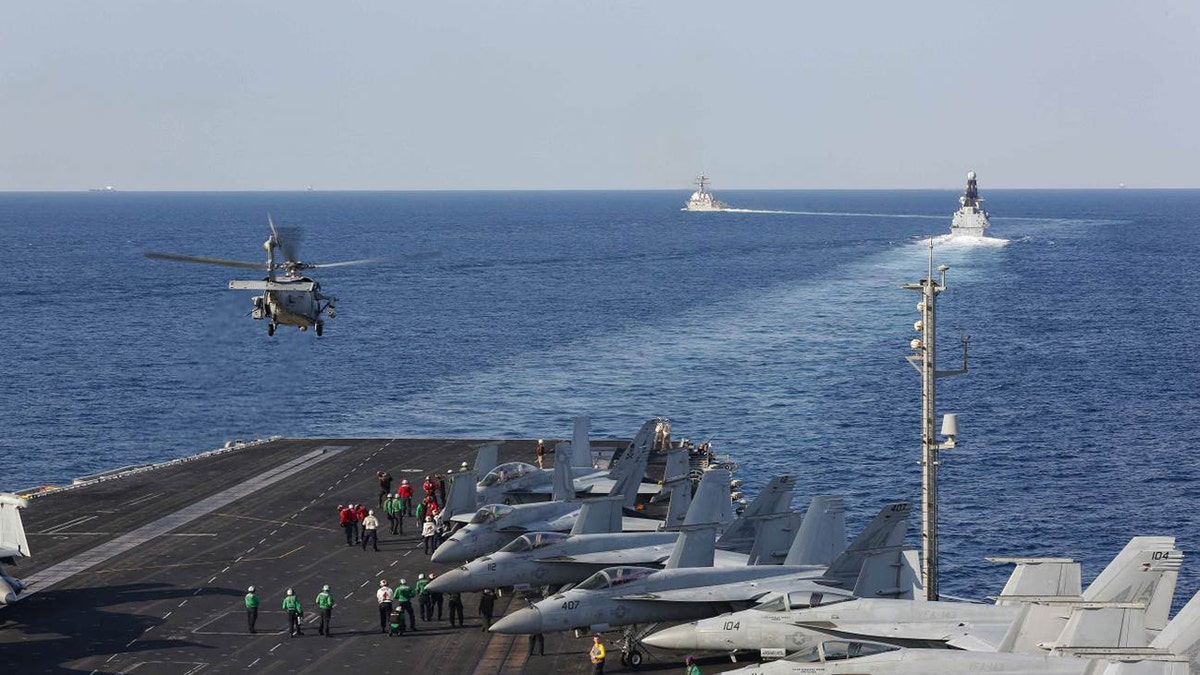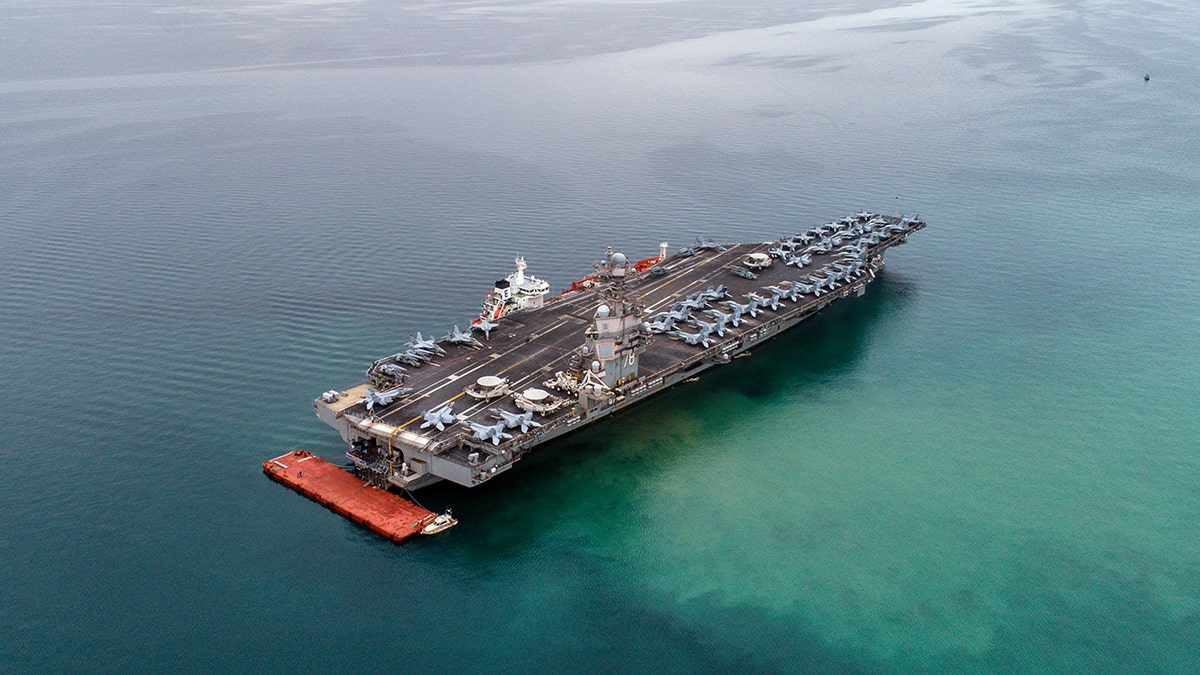The Navy will reportedly sideline 17 vessels due to a manpower shortage that makes it difficult to properly crew and operate ships across the fleet.
There just aren’t enough Merchant Marines to keep all the ships going at once, according to Rear Admiral (Ret.) Mark Montgomery, senior director of the Center on Cyber and Technology Innovation for the Foundation for Defense of Democracy, told Fox News Digital. Merchant Marines operate the many support vessels needed to keep the Navy running.
“The problem, of course, is the ships are at sea, away from home port 12 months of the year,” Montgomery said. “So you need two crews … we’re desperately short of the number of people.”
“There’s a lack of experienced merchant mariners to crew the ships, and this is really a clear danger to national security,” Montgomery added.
MOVEMENT OF CARRIER STRIKE GROUP INTO MIDDLE EAST SENDS A ‘HUGE MESSAGE OF DETERRENCE’: SABRINA SINGH
The Military Sealift Command drafted a plan to put 17 ships into “extended maintenance,” which would include a redistribution of crews to other vessels across the Navy, the U.S. Naval Institute reported.
The ships include two replenishment ships, one fleet oiler, a dozen Spearhead-class Expeditionary Fast Transports and two forward-deployed Navy expeditionary sea bases – the USS Lewis Puller, based in Bahrain and the USS Herschel “Woody” Williams, based in Souda Bay, Greece.
The effort is known as the “great reset” and is awaiting approval from Chief of Naval Operations Adm. Lisa Franchetti. The change will reduce Navy demands for officers by 700 mariners.
MEET THE AMERICAN WHO LAUNCHED MODERN SUBMARINES, JOHN PHILIP HOLLAND, ‘BRILLIANT’ SELF-TAUGHT ENGINEER
The U.S. military has suffered some recruiting problems over the past few years, most notably in the Army, which had to cut its force by 24,000 – roughly 5% of jobs – in 2024 to account for recruiting shortfalls. The Army stressed that it is not asking current soldiers to leave but is aiming to affect posts that have remained empty.
Montgomery stressed that the issue mostly affects Merchant Marines.

“The sailors tend to man our warships … the merchant mariners man something that’s equally important, which is the logistics backbone of the Navy – oilers, ammo ships, transports ships that move the Army and Marine Corps across the water,” Montgomery explained.
“Just like 90% of trade is done by ships and not aircrafts, the same thing applies at sea: It’s too difficult, too expensive – it’s not sufficient to move all that stuff by aircraft, so it’s moved by ships,” he continued.
NAVY WARSHIP PRODUCTION HITS 25-YEAR LOW, FALLS BEHIND CHINA: REPORT
A support group will consist of one or two ships that will move either in proximity or just behind a carrier group of over half a dozen ships, with specific jobs depending on region. Montgomery highlighted an instance around five years ago when the navy tried to deploy 60 ships but only managed to get 25 to sea due to insufficient numbers of people – and the age of the ships remains a concern.

“The average age of the ships in the reserve force is about 45 years old,” Montgomery said. “Between 20 and 30 years is fine, because you don’t have the same issues of modernization of weapon systems and big changes in electrical power distribution … but 17 of the ships are over 50 years old.”
The Navy has a 30-year shipbuilding plan that will include the decommissioning of 48 ships to occur over a four-year period that started in 2022, according to Seapower magazine.
In the first year, the Navy retired 10 ships, and in 2023 the force retired 11 more ships ranging from missile cruisers, dock landing ships and ocean tugs.
The U.S. Navy did not respond to a Fox News Digital request for comment by time of publication.
Read the full article here











